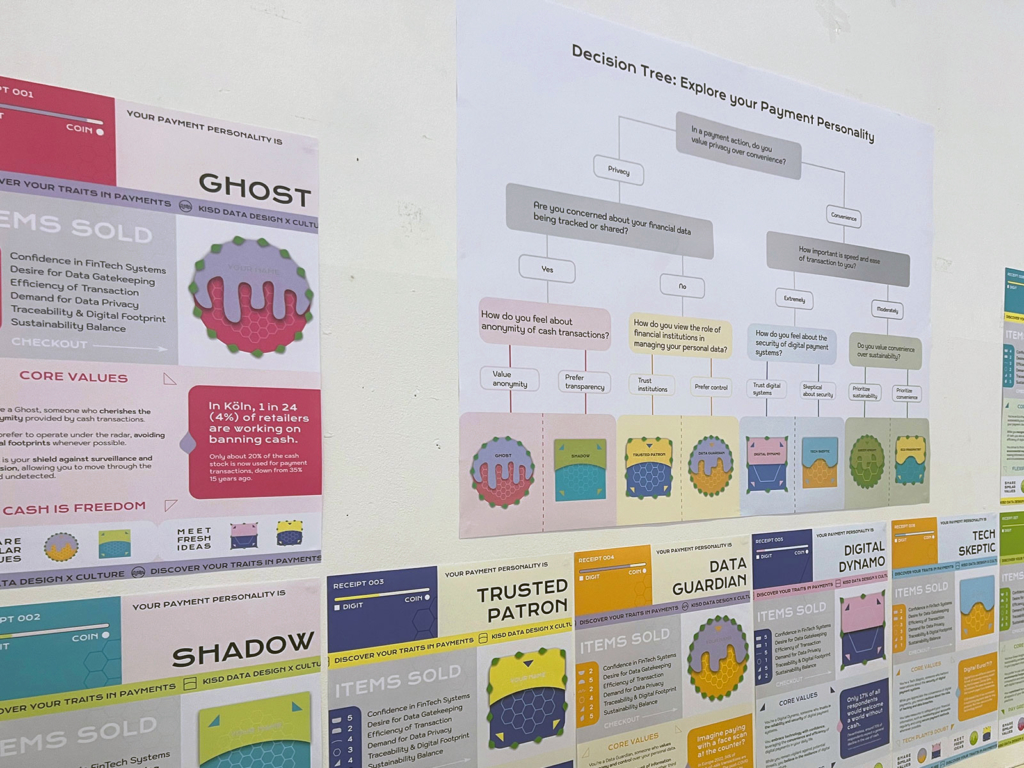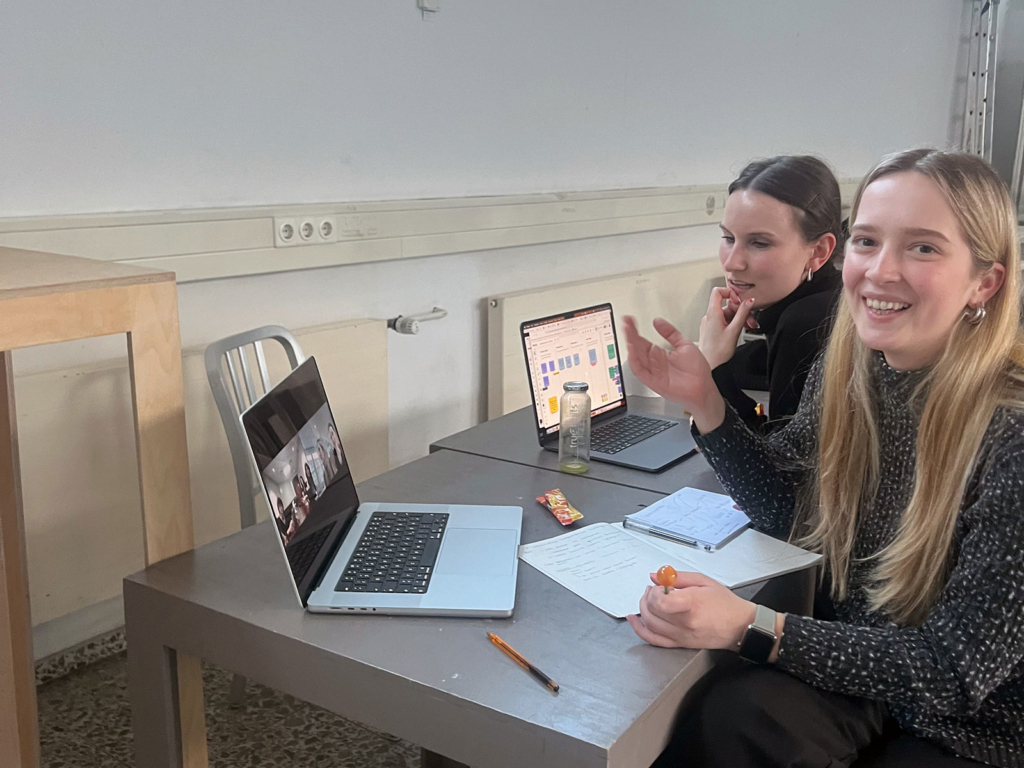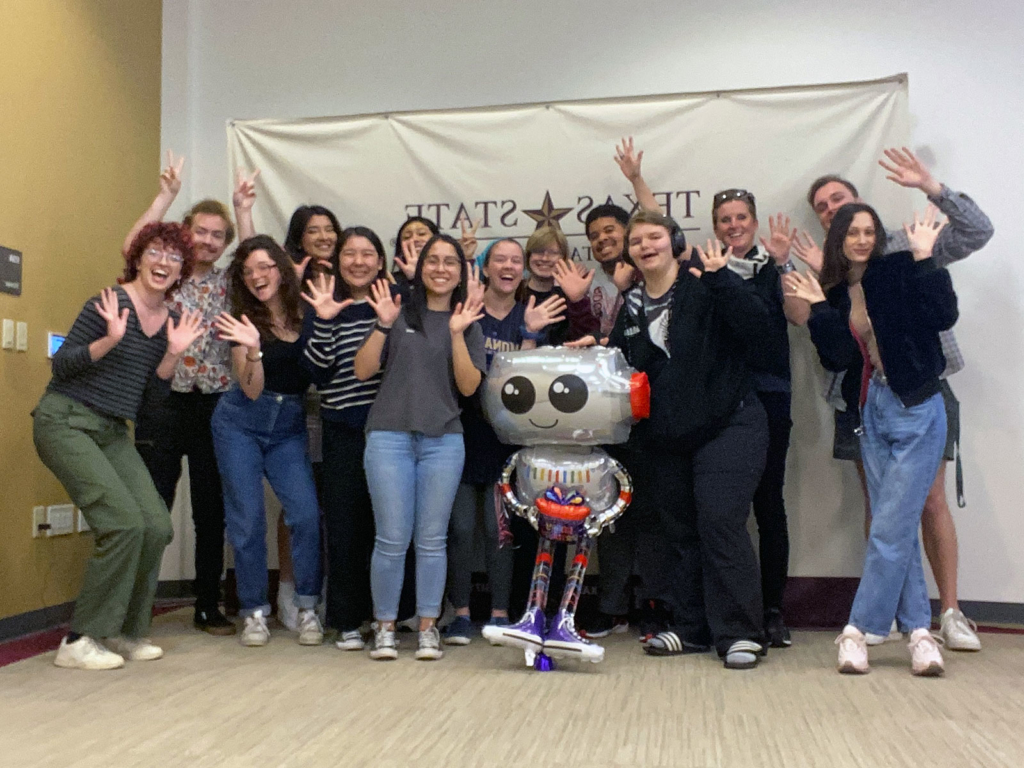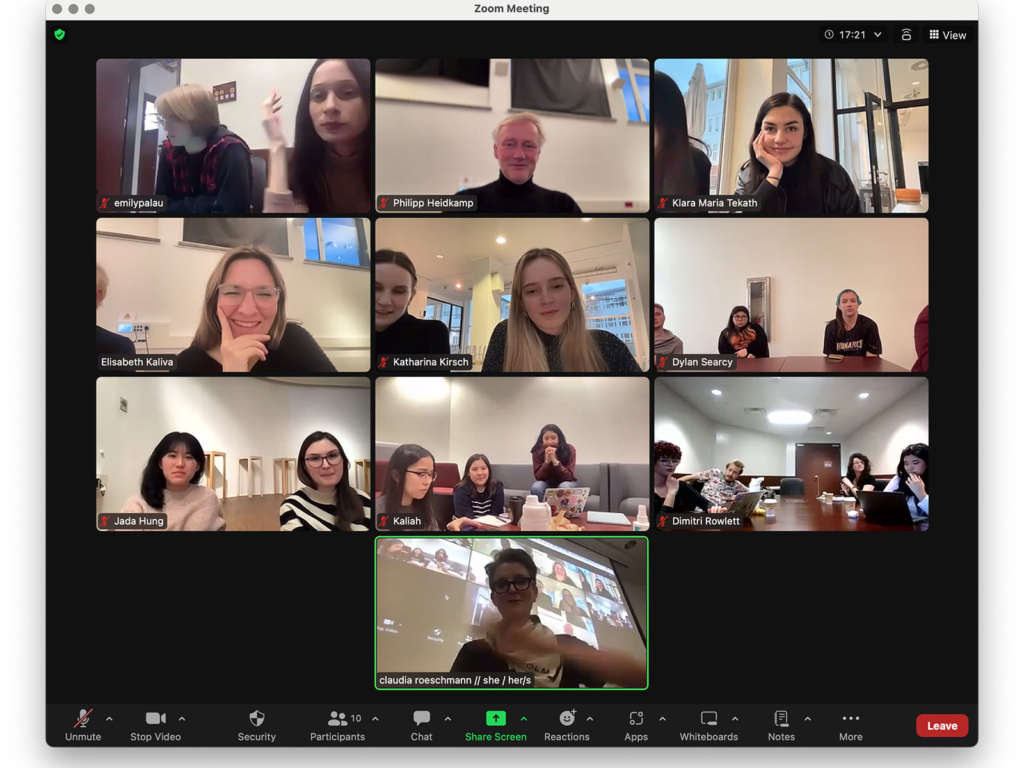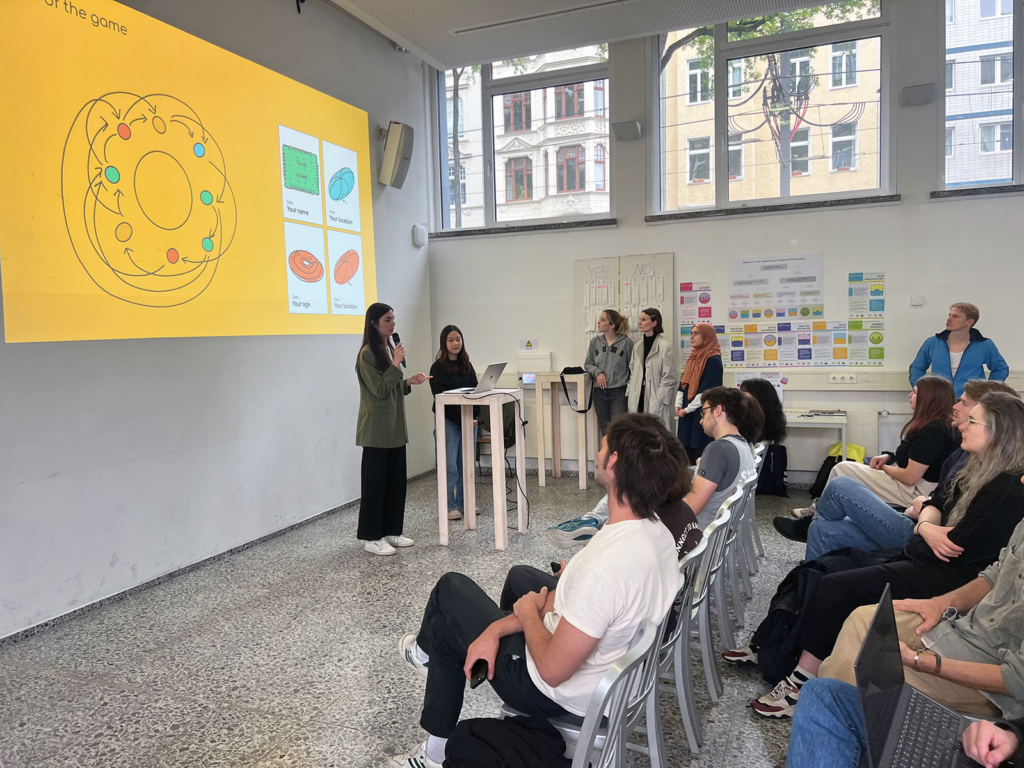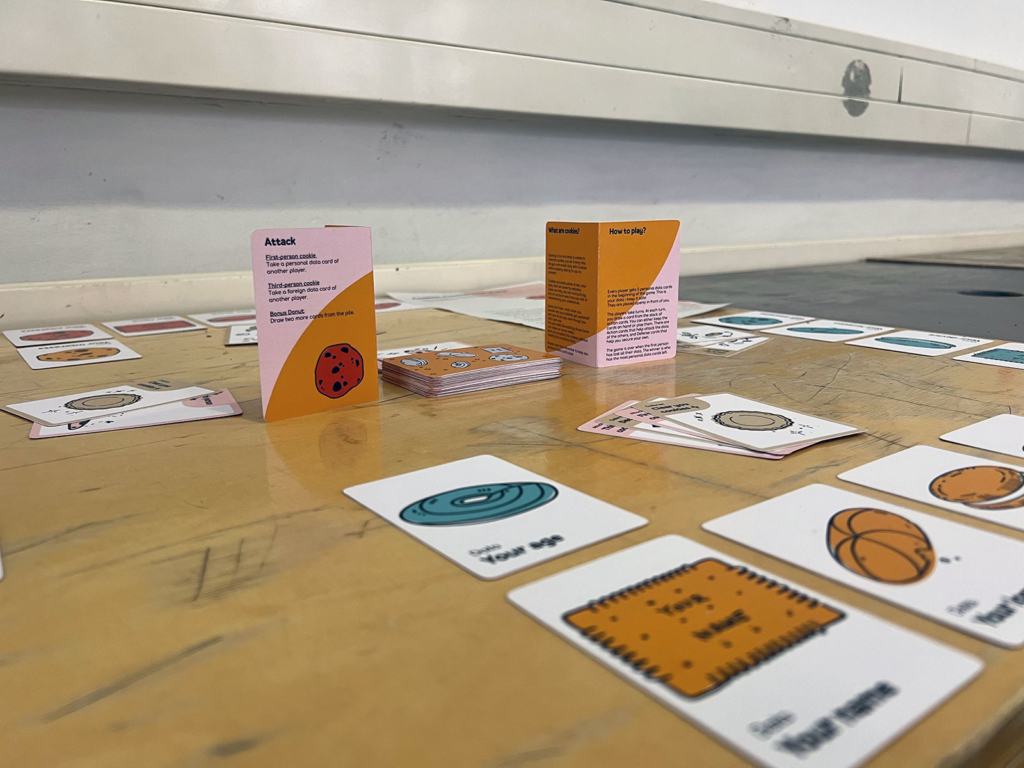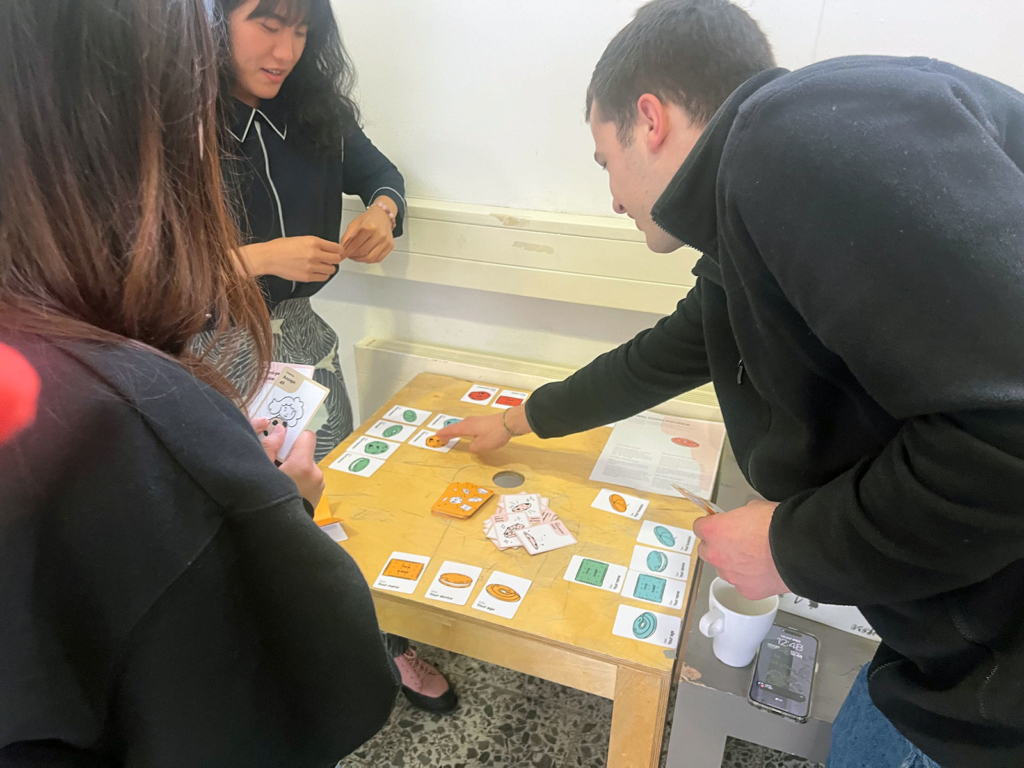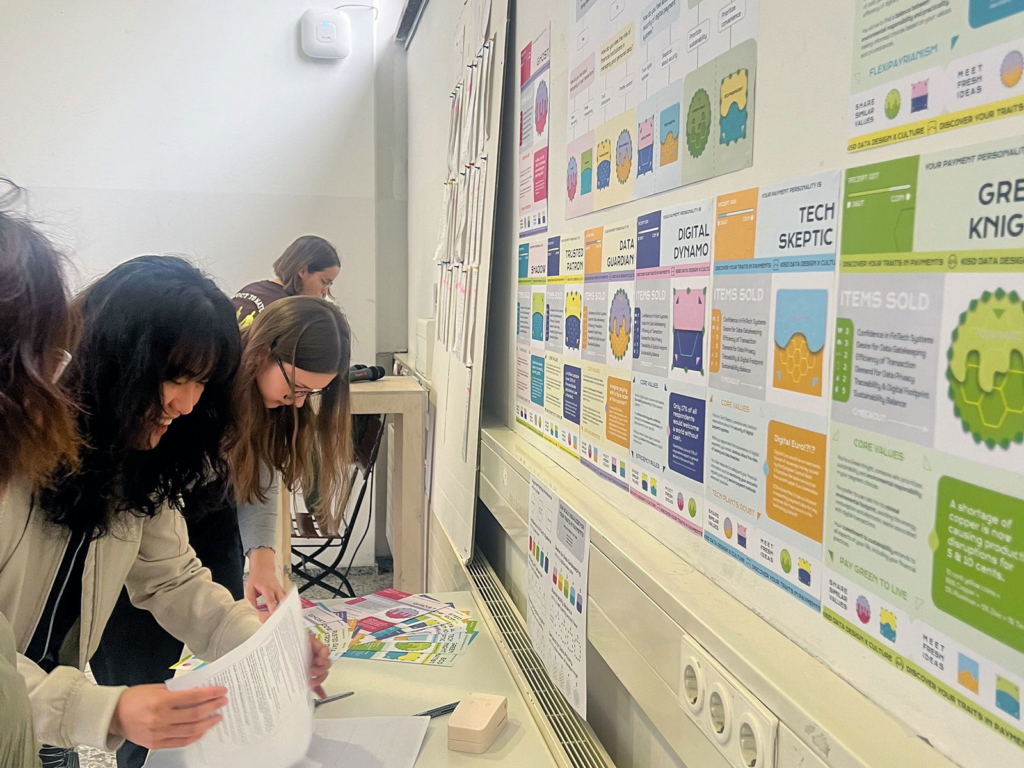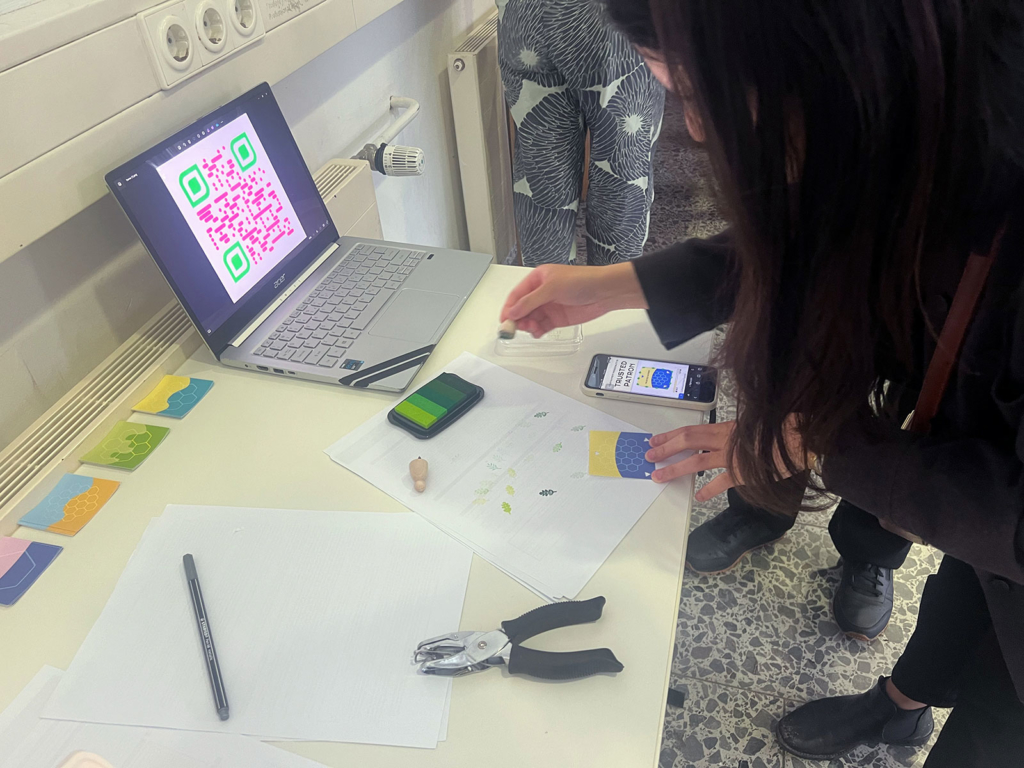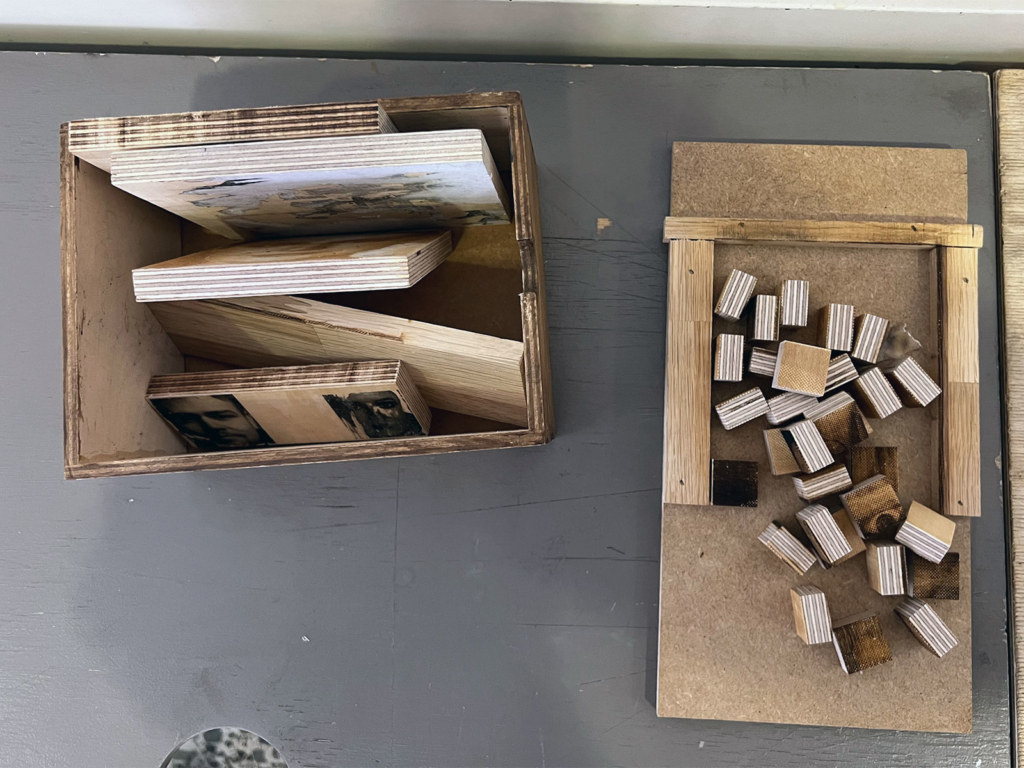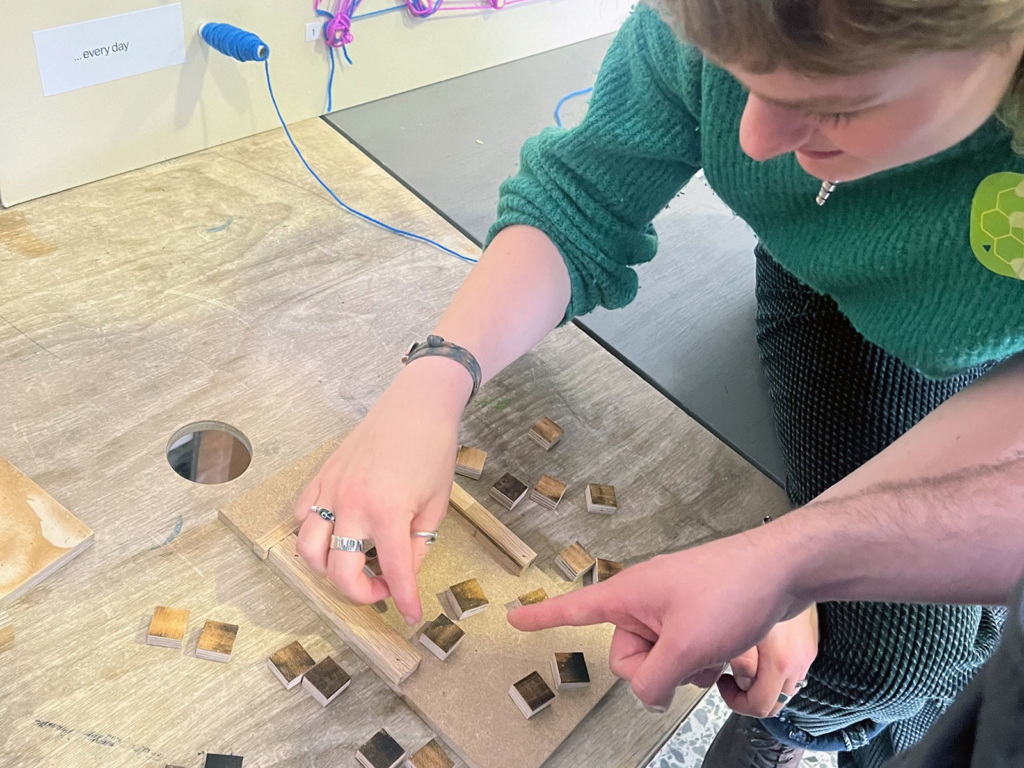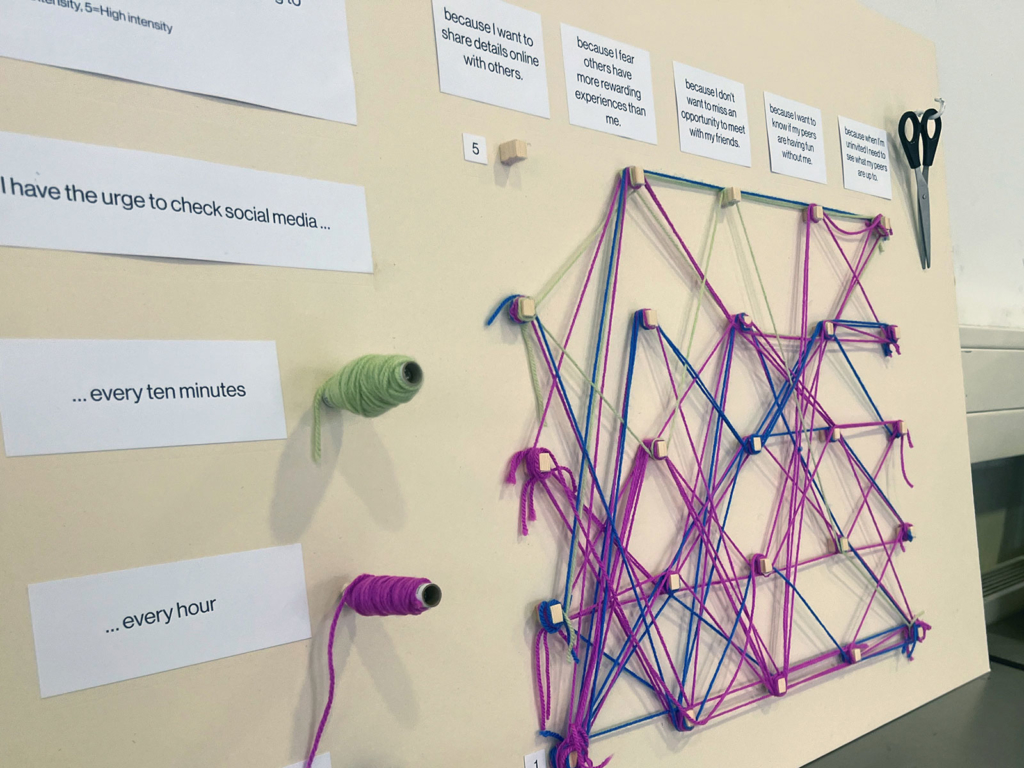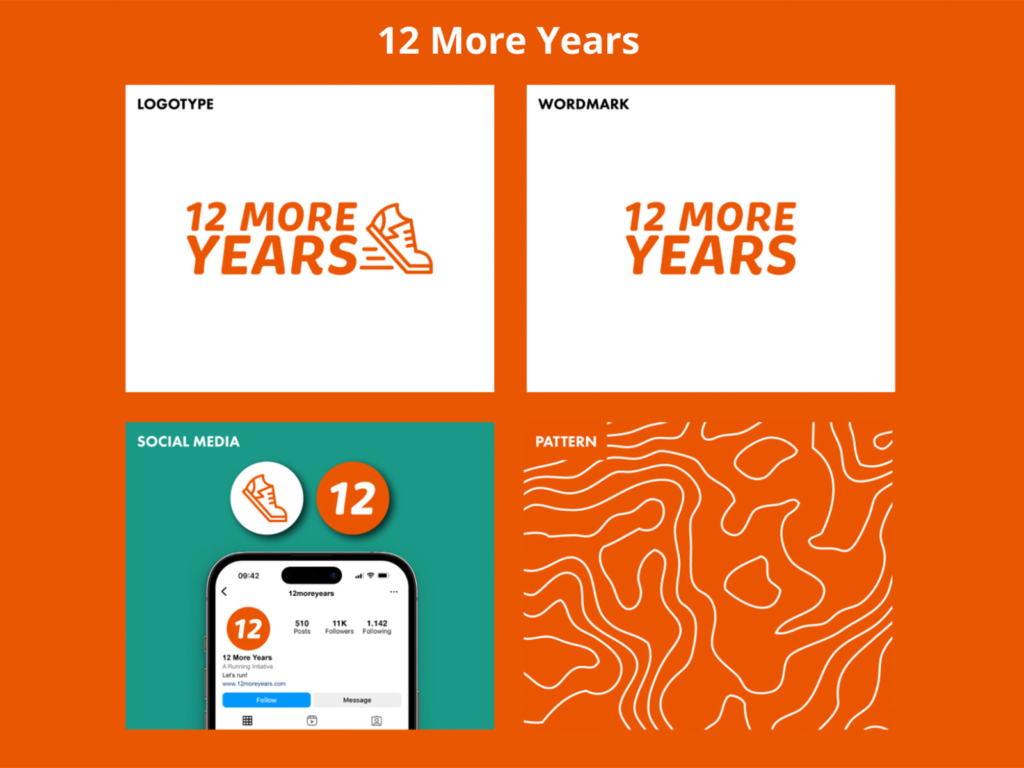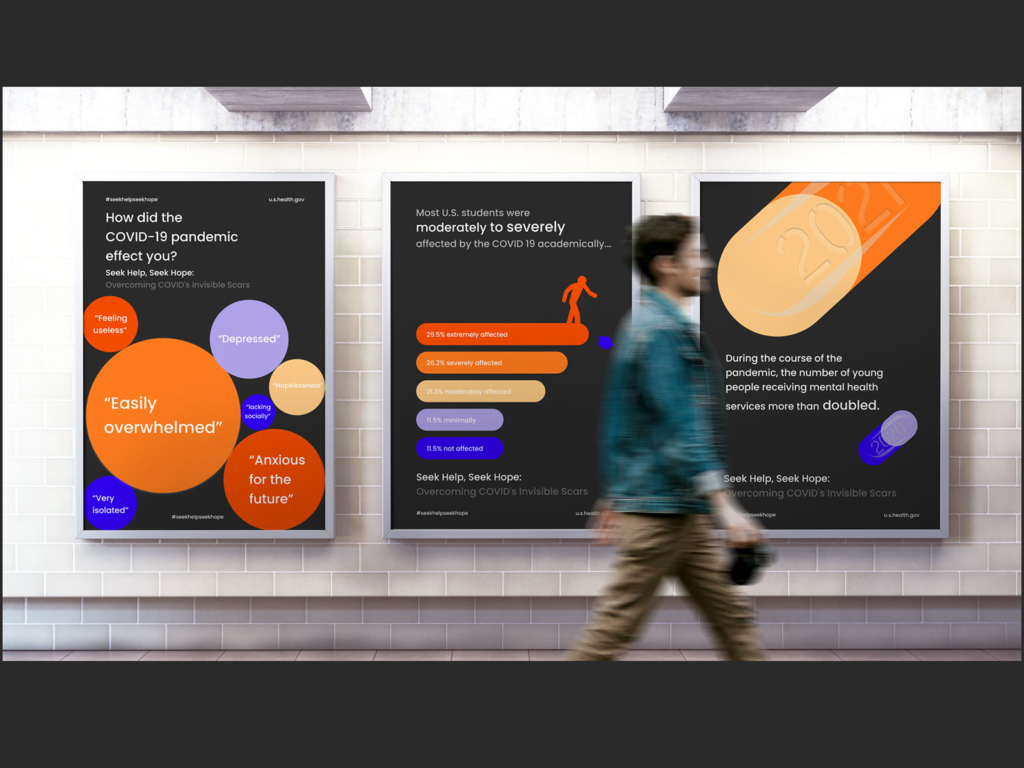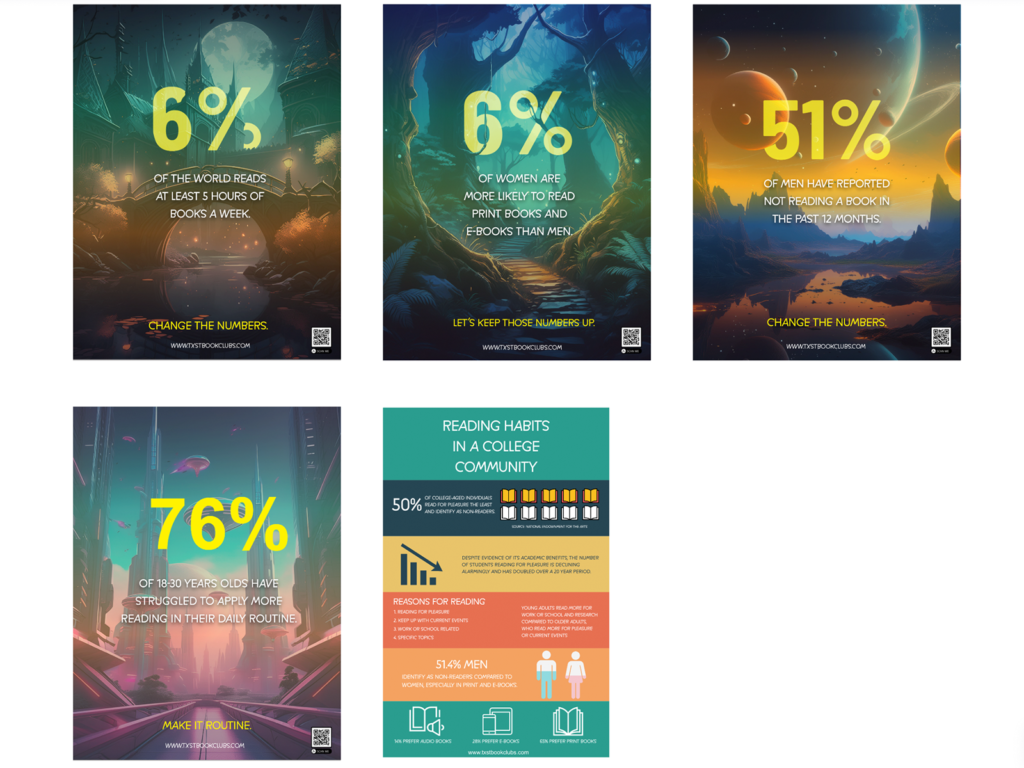The use of data raises many questions and challenges across all walks of life, sectors and disciplines. Data literacy is a skill of the future in today's data-driven world. During the joint project »Design Data X Cultures« between Texas State University (TXST) and Köln International School of Design (KISD) students dealt with the subject of Data Literacy from an intercultural perspective. Through a collaborative and interdisciplinary approach, the project involved the collection of data and the analysis of the data life cycle for the development of innovative analogue or digital design concepts, products or interventions for more data awareness in Austin and Cologne respectively.
TXST and KISD students discussed in several virtual meetings the cultural differences between the USA and Europe when dealing with data. How do cultural attitudes towards privacy influence the acceptance of data collection practices in urban environments? Are there specific cultural values or norms that shape the individuals’ willingness to share personal data, and how does this impact data awareness? How can design contribute to a more transparent and inclusive dialogue about data practices?
The cross-disciplinary discussions between the two universities were an effective way for the cross-cultural development of data literacy, fostering international cooperation and exchange between the students and the instructors, that led to the development of several solutions to increase data awareness.
To highlight a few of the projects: after intensive research into the concept of internet cookies and their impact on the transparency of our activities and interactions on digital platforms, a group of KISD students developed the game »Crumbly Connection«. The game aims to increase knowledge about cookies and improve the sense of control in a playful way. The development was accompanied by intensive discussions with the students from Texas about the differences and similarities in the use of cookies between Europe and the USA and the data protection regulations in both countries. This highlighted the role of privacy regulations, particularly in Europe, and their influence on user interface design and user experience.
A group of students at KISD worked on FOMO (Fear Of Missing Out), which is associated with activities and posts on social media channels. They developed an installation to make this feeling visible in the form of an interactive analogue survey at KISD. The topic of mental health was also important for the students from Texas. Two project groups examined how to create more awareness and visibility for this sensitive topic through the careful handling of data. Students at TXST University developed an interactive sculpture, »Mind Mosaic«, which uses data to create an awareness of the current mood of students on campus. Another group worked on visualizing data on campus to raise awareness of the impact of COVID on students’ mental health in the post-pandemic era. After conducting a survey on reading habits at TXST, another group used their data to create a poster campaign to counteract the decline in reading among the university community.
The question of how the preferred method of payment (cash or digital) depends on one’s own idea of privacy and data protection, on one’s own culture, led the group »Payment Issues« at KISD to the idea of an interactive analogue badge system that would lead to discussions and more visibility on this sensitive topic. This topic was particularly stimulated by the special status of cash payments in Germany, which became clear during the discussions between TXST and KISD.
With the increasing collection of biometric data and its processing by artificial intelligence in mind, a group from KISD developed a puzzle of a face to provide a haptic confrontation with the question of how algorithms process our data. Biometric data was also the subject of a group of students from Texas. They developed a concept to help runners with their nutrition and hydration during the Austin Marathon by using biometric data in a privacy-compliant way.
Overall, students appreciated the cultural exchange and shared insights, especially through deep, enriching discussions about apparent cultural differences and similarities during the design process. Participants enjoyed different ways of communication and collaboration, feeling understood and inspired by the feedback from their international peers. There was a desire for More Collaboration on joint projects with the KISD students, and More Interaction through additional class meetings to deepen the engagement. From the students’ perspective, the course provided valuable lessons in data collection and use, cultural differences in design approaches, and new perspectives on the design process, encouraging students to think differently about design.
We are very pleased to continue our collaboration with TXST by offering the project to our students again in the summer semester 2025 as part of our Internationalization at Home strategy.
Lectures TXST: Prof. Claudia Röschmann
Lecturers KISD: Dr. Elisabeth Kaliva, Lisa Janßen, Prof. Philpp Heidkamp
Students TXST: Caroline Koi, Mia Mireles, Annaliese Schwartz, Alyssa Scott, Trin Sosa, Dylan Searcy, Kaliah Orum-Harris, Mason Espedal, Emily Palau, Mattie Jones, Natalia, Lori Rodriguez, Dimitri Rowlett, Adrian Flores, Emma Brown
Students KISD: Angel Lai Yan Yu, Diana Guadalupe Espino Flores, Gulsah Tuana Demir , Jui Yu Hung, Katharina Lena Kirsch, Chiara Annerose Schröder, Dajana Elvira Velde, Jood Khayal, Klara Maria Tekath, Ni Xiaofeng, Rina Marie Dorette de Vries, Semiha Merve Boyar



